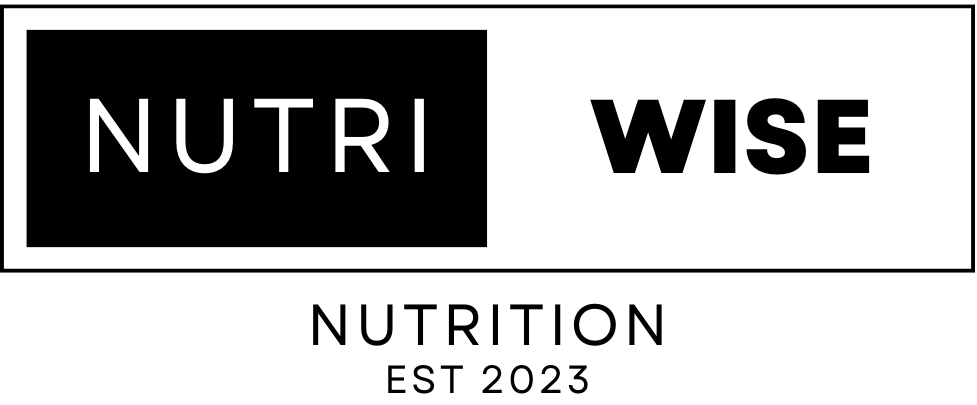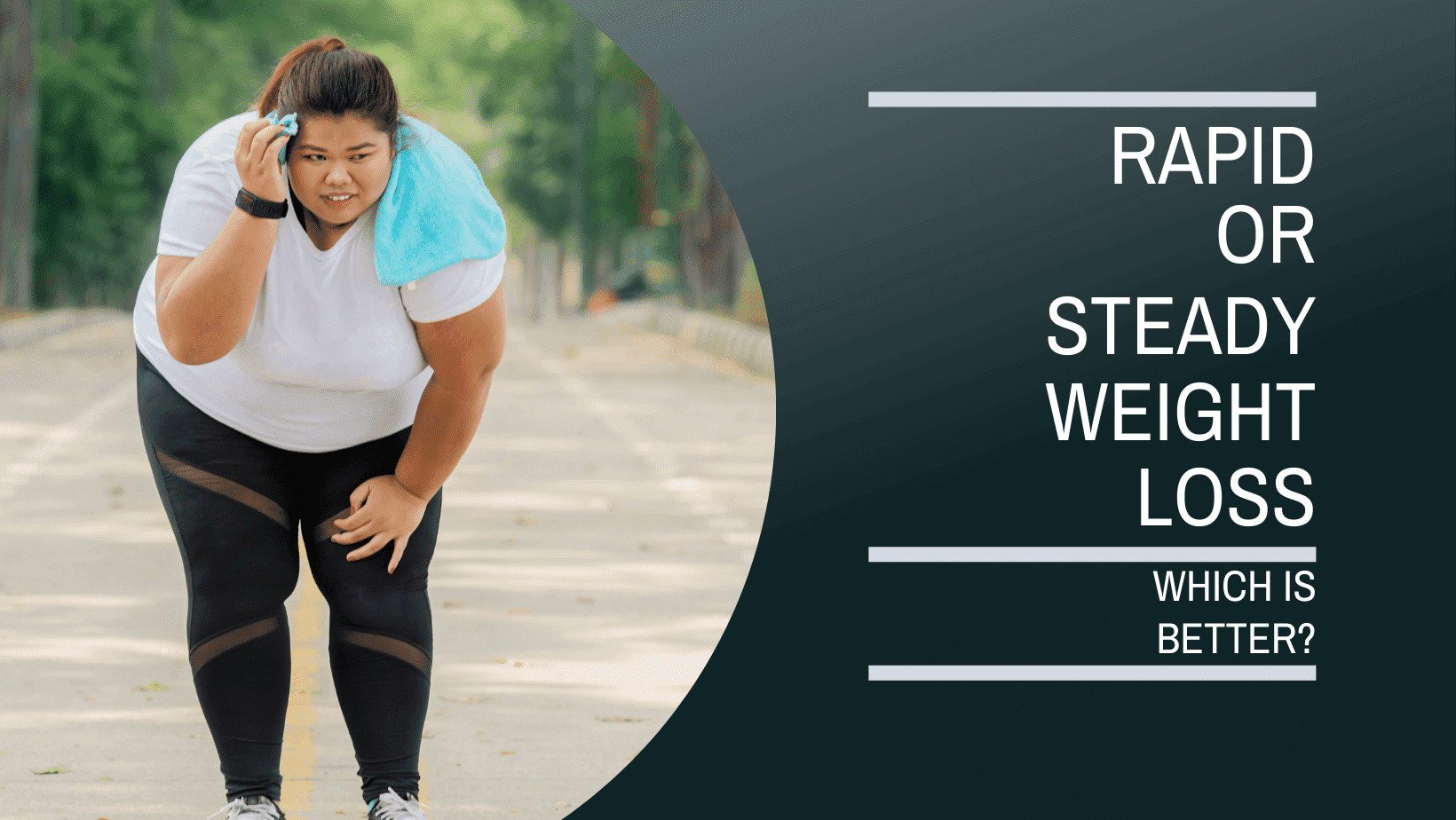Fast Or Slow – The Best Way To Lose Weight
The ability to shed weight quickly can be a desirable goal for many individuals. This process, however, may not always be the most beneficial approach to achieving optimal health outcomes. As such, it is essential to consider the potential benefits and drawbacks of a rapid weight loss regime. With so many fitness challenges out there it’s easy to see how people can benefit from short term weight loss – excess weight is a killer – but plenty of coaches and nutritionists will also tell you change isn’t sustainable unless other practices are brought in place to support proper long term weight management. So which is the right approach?
What Does The Research Say About Rapid Weight Loss?
Research has suggested that shedding excess weight can have numerous positive impacts on an individual’s overall health. For instance, studies indicate that rapid weight loss could improve cardiovascular function and reduce hypertension risk by reducing fat deposition in the arteries. Similarly, research suggests that rapid weight loss could also help lower cholesterol levels and reduce the risk of certain types of cancer. Additionally, short-term effects of a fast-paced weight reduction regime may include increased energy levels as well as improved mood and mental clarity due to the release of endorphins associated with physical activity. Depending on the amount of weight lost, it can also alleviate pressure on hips, knees, ankles, feet and the back and improve joint function.
Conversely, there are also some risks associated with dropping weight quickly that should be taken into consideration when deciding on an appropriate course of action. Unfortunately severe caloric restriction can cause the body to perform extreme adaptations in an attempt to preserve energy and stay alive. This means things like hormone production and menstrual cycles can tank. Many women have fallen victim to amenorrhea and been unable to recover, needing the assistance of endocrinologists and IVF to fall pregnant later in life. Those who were able to recover often required the assistance of a knowledgeable coach and a long period of time reverse dieting in an attempt to recover their metabolic rate and increase body fat levels to a level their body was comfortable with.
There are also other concerns, for example, sudden changes in dietary habits may result in nutrient deficiencies or dehydration if proper care is not taken to ensure adequate nutrition and hydration levels are maintained throughout the process. Moreover, extreme caloric restriction can cause fatigue or malnutrition and may even lead to serious health complications if continued over longer periods without proper medical supervision. Therefore, it is essential to carefully weigh up the potential risks versus rewards before embarking on any form of rapid weight loss program and undertake it with the proper assistance.
The Benefits Of Dropping Weight Slow
Slowing down the process of losing weight is often seen as a more sustainable approach, providing many benefits. Seemingly sluggish steps towards shedding pounds can be associated with several positives. Firstly, it allows for more time to transition into healthier habits which are easier to maintain over the long-term. Secondly, it offers one the opportunity to become accustomed to the changes in diet and physical activity before pushing their body further.
Diet history matters a lot here. Those who have struggled with eating disorders in the past will benefit from a more measured approach to weight loss than the “average person” as many of these people will have done damage to their body that takes time to repair. Metabolic damage occurs to people in both a weight gain and loss environment. Someone who is obese may develop signaling issues with their ghrelin/leptin response whereas someone who is underweight may have an incredibly low BMR which needs gentle nudging in the right direction. Their low BMR isn’t fixed magically the moment they begin to eat “normal” amounts of food again and they end up over eating. This can stay suppressed and lead to drastic weight gain and a seemingly impossible task to lose body fat healthily.
I like to remind people they didn’t end up with the body they have today by accident. It takes time to accumulate excessive amounts of body fat and it takes time to remove it as well.
Furthermore, taking a gradual approach helps create a steady and consistent reduction in weight over time. This makes it less likely for one to become overwhelmed by sudden drastic changes which could lead to feelings of deprivation or loss of motivation. Additionally, going slow when losing weight gives the body enough time to adjust and adapt while still achieving results. As such, this method can be particularly beneficial for individuals who want to make a significant change but do not have much experience with dieting and exercise plans.
What To Consider Before Dropping Weight Fast
When it comes to shedding weight, the decision of whether to do it fast or slow can be a tricky one. It is important to consider the possible consequences of either choice before committing to a method. This section will focus on what should be taken into account when considering dropping weight fast.
Your starting point should always be knowing your predicted maintenance calories. If you don’t, you can estimate it with one of the online tools. Remember, this will change the lighter you get so you’ll need to recalculate it at some point – knowing what it is before starting helps as a point of reference, but also if you fall off the bandwagon how much you can actually eat without gaining back anything you lose.
Secondly, it is important to ensure that any drastic changes in diet and exercise are medically safe for an individual’s body type and any existing conditions they may have. Depending on their health history and current state, certain methods may be more appropriate than others. Additionally, as with any goal involving drastic lifestyle changes, it is essential to consult with a doctor or nutritionist for expert advice on how best to achieve the desired outcome safely and effectively.
Furthermore, in order to properly lose weight quickly, it is necessary to have a comprehensive plan that includes both diet and exercise. A plan should include goals for daily caloric intake and the types of exercise that will be incorporated into the routine. You should at a minimum have a daily protein target as part of your calorie allowance.
Additionally, monitoring progress closely can help determine if results are satisfactory or if modifications need to be made in order for the desired outcome to be achieved in a healthy manner. This is where hiring a skilled coach comes into play.
In summary, when considering dropping weight fast, one must factor in personal health history and consult with medical professionals before beginning any program. Having an effective plan that covers both diet and exercise can increase the chance of achieving intended results while maintaining overall health.
What To Consider Before Dropping Weight Slow
When considering the best approach to weight loss, it is important to consider the pros and cons of both slow and fast weight loss. Both have their own unique advantages and disadvantages. This section will focus on the considerations that should be taken into account when attempting to lose weight slowly.
As mentioned in the section above – know your calorie needs. This is the starting point for any weight loss journey.
Once you have this it is essential to create a longer term plan when aiming to lose weight slowly. Preparation is key in order to ensure that progress is made without compromising health or wellbeing. It can be beneficial to set realistic goals and have a clear idea of what success looks like in order for an individual’s efforts not to be wasted. Additionally, having a support system in place can help with accountability and motivation, which are both integral components of long-term success.
With a plan in place, it is important to remain consistent with any dietary or lifestyle changes that are implemented in order for them to be effective. This may involve making gradual changes over time rather than attempting drastic transformations all at once. Whatever the change, you need to be consistent with it – consistency trumps enthusiasm.
Will you need to join a gym or can you do this at home? Incorporating exercise into a routine can help with the process of losing weight slowly by increasing calorie expenditure and improving overall fitness levels. However, it is important that any physical activity undertaken does not put too much strain on the body or cause injury due to overexertion. If you’re a beginner it is often more advisable to join a gym and get proper instruction from a qualified trainer as opposed to adopting a generic workout plan from the internet and watching exercise technique videos.
In summary, there are various considerations that need to be taken into account when deciding whether or not to opt for slow weight loss instead of fast weight loss. Planning ahead, setting realistic goals and having a support system in place can help ensure that progress is made without compromising health or wellbeing while remaining consistent with any dietary or lifestyle changes implemented can also prove beneficial in the long run. Incorporating exercise into a routine may further contribute towards successful outcomes but caution should still be exercised in order ensure safety during physical activity
Finding The Right Weight Loss Plan For You
Determining the appropriate weight loss plan for the individual is a crucial factor in the journey to successful weight loss. It is important to choose a plan that works best with an individual’s lifestyle and long-term goals. For instance, some individuals may have time constraints or events in mind and require a plan that can be completed in a short period of time. On the other hand, others may prefer a more gradual approach to weight loss with long-term results.
A good weight loss program should include healthy eating habits along with regular physical activity. A balanced diet should contain an adequate amount of proteins, carbohydrates, fat, vitamins, minerals and fiber to help promote optimal health during weight loss. In addition to proper nutrition, physical activity is necessary for burning calories and building muscle mass. The type of physical activity chosen should be based on personal preference and ability level; however, it is important to remain consistent and challenge oneself regularly in order to see maximum results from the program.
Weight loss plans vary greatly depending on individual goals; however, each plan should include lifestyle changes that are sustainable over time in order for the individual to achieve their desired weight loss goals successfully. Consulting with a healthcare professional and coordinating with a coach may help provide guidance on creating an effective plan tailored specifically for an individual’s needs. With dedication and commitment, anyone can reach their desired health goals through choosing the right weight loss program for them.
Conclusion
Dropping weight is a difficult task that requires dedication, hard work, and consistency, whichever method you choose. There is no free pass! People often debate whether it is better to drop weight fast or slow and while the answer to this question will depend on individual circumstances, both approaches offer certain benefits that should be taken into account.
Dropping weight fast appeals to a lot of people because it provides quick results, which may act as a strong motivator and increase the chances of success. On the other hand, losing weight slowly can help ensure that any changes made are sustainable in the long-term and unlikely to be reversed when dieting stops.
When deciding which approach to take, it is important to consider factors such as your current health status, lifestyle choices, and available time and resources. Of course, finding the right plan for you is key to achieving successful results; so before committing to either approach, it is important to research available options and seek advice from a qualified professional if needed.
Whether you choose to drop weight fast or slow both offer advantages depending on your personal situation and if one method didn’t work for you that’s great – now you know what not to do next time. The most important thing is finding a plan that suits you while adhering to safe practices; with the right approach, anyone can achieve their desired goals.











